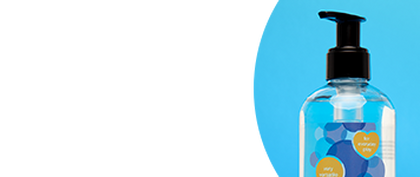In this guide: What is lube used for? | What are the safest alternatives? | Lube alternatives to avoid | Where to buy lube | How to use it
You’re in the heat of the moment. Clothes are flying, hands are everywhere, you’re ready to get it on when suddenly… you realise you need a little help. Friction isn’t sexy, and dryness slows down the fun. That’s where lube comes in; getting things back on track by adding instant, sensual slickness.
And if you don’t have any on hand, there are some safe lube alternatives that can work in a pinch – but you do need to be careful what you put down there. So, whether you’re restocking, experimenting, or improvising, here’s your ultimate guide to the best lube options and safe alternatives.
Only got time for a quickie?
Ready to glide through your next encounter? Here’s the lowdown on specially designed lubricants as well as alternatives of lube that actually work:
Lube makes sex more comfortable and pleasurable by reducing friction, preventing irritation, and enhancing the sensation of physical contact.
Water-based lubes are the most versatile, toy and condom-safe, and easy to clean.
Silicone lubes tend to last longer and are perfect for anal play or shower fun, but can damage silicone toys.
Oil-based lubes feel silky and long-lasting, but they aren’t condom-safe and can trap bacteria.
Natural alternatives like coconut oil or aloe vera can work, but take care with which product you choose because not all options are safe to use as lube (read the ingredients!).
Steer clear of bathroom-cupboard substitutes like body lotion and Vaseline, which can lead to infections or irritation. Surprisingly, saliva can sometimes cause the same issues too.
It’s easy to buy high-quality lubes online – and specially designed lubricant is always better than risking a rash from using what happens to be to hand.
For lots of us, lube isn’t just a ‘nice-to-have’ – it can be the difference between a pleasurable, smooth sexual encounter and one that leaves you sore, irritated, or even more vulnerable to sexually transmitted infections.
One study found that lube can be helpful for people who experience vaginal dryness (which is a common symptom of menopause but can happen at all ages) or pain during sex. The study says that “use of lube may result in improved sexual health and wellbeing” and recommends it for people who have anal sex as well as vaginal.
So, lube’s both fun and functional: we love it! Let’s break down the three main types of lube you can find for sex:
- Water-based lubricants are the most versatile lubes out there. They’re condom-safe, toy-safe, and easy to wash off skin and fabric – making them the best all-rounder for partnered sex and solo play.
That said, sexual health nurse Sarah Mulindwa points out: “Water-based lubes are versatile, but they may need reapplying. Meanwhile, silicone-based lubes last longer, are great for anal play, and safe with condoms – but not always with silicone toys.”
- Silicone-based lube is often longer-lasting than water-based options, with a luxurious cushiony glide that makes it a more comfortable choice as anal lube. Plus: because it doesn’t break down in water, it’s the best choice if you like having sex in the sauna, tub, or shower. The downsides? Unlike water-based lube, it can stain your sheets. And, like Sarah said, it can damage silicone sex toys.
- Oil-based lubricants feel velvety and are slow to absorb, making them great for sensual full-body massage. Many people choose oil-based lube like coconut oil because they believe it’s more natural. But be careful! Oil-based lube isn’t the best for penetrative sex as it’ll break latex condoms. It’s also difficult to wash off, and can trap bacteria, which may lead to yeast infections or irritation for some people if used internally.
For more details on choosing a great lube and knowing when to use it, check out our beginner guide on how to use lube.
Long-lasting, body-safe, sensual lube
“Specially-formulated lubricants are always the safest option, because they're designed with intimacy in mind,” says sexual health nurse, Sarah Mulindwa. “They're pH-balanced to protect the delicate vaginal and anal tissues, dermatologically tested to minimise irritation, and free from ingredients that can disrupt the natural microbiome.”
“Unlike household products, lube reduces friction without compromising condom integrity, making it a much safer and more reliable choice,” Sarah adds. Sometimes, though, you don’t have a bottle of lube to hand – and improvising in the moment feels tempting (and kind of sexy too!).
The good news: some lube alternatives can be safe to use occasionally. The not-so-good news: many aren’t. The safest options are ones that are body-friendly, unlikely to disrupt your vaginal pH, and free from additives. Let’s check ‘em out:
Coconut oil
Virgin coconut oil is one of the most popular natural lube alternatives. It’s thick, long-lasting, and it has a lovely natural scent too – which means it can usefully double up as a massage oil. Some people also like that it can be an organic lube (depending which kind you buy, of course).
However, “if used excessively, or if the coconut oil has additives, it can alter the vagina’s pH and raise the risk of [a] yeast infection or bacterial vaginosis,” says women’s health expert Jennifer Wider, M.D. She adds that “it’s also not considered condom-compatible”.
- Pros: Smooth glide, natural, moisturising, edible (so, fab for oral sex).
- Cons: Not safe to use with latex condoms, can clog pores, and may increase the risk of yeast infections for some people.
Aloe vera
Pure aloe vera works surprisingly well as lube, and may be beneficial for sensitive skin, but be warned that not all aloe-based gels are formulated with sex in mind.
One study finds that aloe vera contains “antimicrobial and antifungal compounds”, which might be helpful for reducing skin irritation, but another reminds us that, “aloe vera products differ hugely” in purity and may contain skin-irritating additives. So, always read the label first and go for pure aloe vera only.
- Pros: Pure aloe vera is gentle on sensitive skin and quite moisturising. It’s also water-based, unlike many natural alternatives, which makes it safe for use with sex toys and condoms.
- Cons: Many store-bought aloe gels have additional ingredients which might irritate the genital area or even harm condoms. It can also dry out faster than actual lube.
Olive oil
While olive oil might seem like a handy grab, it turns out it’s generally best left in the kitchen. Like other vegetable oils, it’s thick and long-lasting – but it does come with some risks. “Similar to coconut oil, olive oil isn’t condom-safe and can increase the risk of infections due to its thickness and tendency to cling to tissue,” says Sarah Mulindwa.
- Pros: Easy to find, long-lasting, smooth texture.
- Cons: Not condom-safe, hard to wash away, could upset vaginal flora or increase the risk of infections.
Some household products are better kept away from your most delicate parts, whether you’re playing solo or masturbating. While it’s tempting to go for whatever’s nearby, you do run the risk of damaging your condoms, toys, or even getting an infection. So, make a note – these lube alternatives should always be avoided:
Saliva
It’s free, it’s natural, and – in the heat of the moment – it feels like an easy option. But saliva evaporates quickly, leaving you drier than before. “Saliva offers very little lubrication,” says Sarah. “It can introduce bacteria or viruses, making it unhygienic and unsafe for STI prevention”.
Butter
Yes, dairy butter is nice ‘n’ slippery – but it’s also full of dairy proteins that don’t belong inside your body and can cause infections. Like shea butter, it can clog pores, alter your vaginal pH and trap bacteria. No thanks: next!
Body lotion
Lotions might seem like a hydrating stand-in, but “they’re formulated for external skin, not intimate tissue,” Sarah says. They’re usually full of additives like parabens, as well as fragrances and alcohols that can irritate delicate skin. To top it all off, they aren’t condom safe.
Vaseline
Vaseline is made from petroleum jelly and a mixture of waxes. It’s long-lasting and slippery, but the risks far outweigh the benefits. Petroleum jelly is an oil byproduct, which means it can weaken condoms and may even trap bacteria in the delicate, absorbent genital areas. Best to avoid!
Baby oil
“Like other oils, it weakens condoms and can cause vaginal irritation or infection,” says Sarah. Baby oil is mineral-oil based, which means it lingers on the skin and is really difficult to wash away. Great for dry elbows; not so nice for your genitals as you might end up trapping bacteria there.
It’s always worth buying a body-safe lubricant that’s designed for sex. You can get it in your local supermarket, pharmacy, or even some off licenses and petrol station shops, so it’s really easy to find.
Even better, you can order it online, which gives you an even wider range of options that are safer and more effective than any kitchen cupboard stand-ins. It doesn't have to be expensive, so long as it's body safe and designed for whatever you’ve got in mind. Plus, you can get fast, discreet delivery with Lovehoney – so you can spend less time raiding your cupboards and more time having fun! Explore our lubes.
Using lube is easy: just slick it on yourself, your partner or your toys. A few simple habits, though, can make the experience even better:
- Choose the right lube for the activity. Water-based lube is best for general play, especially if you’re using toys. Use silicone-based lube for longer sessions or shower sex. And check out our guide to picking the best lube for anal.
- Apply generously to fingers, vulva, anus, and toy or penis – and reapply as needed.
Keep a clean towel nearby if you don’t like the slick feeling of lube on your hands. You can also throw a towel or waterproof blanket over the bed to avoid stains from silicone lube.
Avoid cross-contamination, especially if using lube from a tub like coconut oil – use clean hands or a spoon, and never double dip. Pump-action lube bottles are the best way to quickly grab a little extra slickness.
- Wash toys and bodies thoroughly after sex. Water-based lube will easily wash away after sex, but be careful with oil and silicone-based lube. If you get this on fabric, you’ll need to take extra care on those stains! Try a mix of warm water, soap, and white vinegar.





















